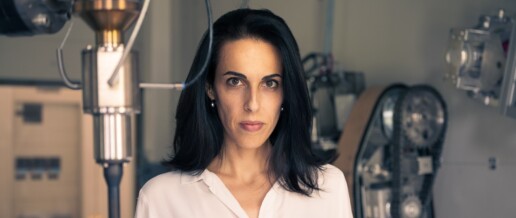— English
Major Challenges in a Tense Political Environment
The European Science and Innovation Councils met in Vilnius in mid-May. The meeting was characterised by the relationship between civil and military research. Increased international competition is also putting the advisory bodies under pressure. Read more
"Today's students are global citizens"
Bryn Roberts is a new member of the Swiss Science Council SSC. The data and analytics leader, who works at Roche in Basel, values the freedom of academic research. This is also of benefit for the economy, he says.Read more
"We should develop a scientific culture that focuses on social and economic challenges"
Anna Valente is leaving the Swiss Science Council SSC after four years. At the SSC, she learnt about best practices in research policy both in Switzerland and worldwide, she says.Read more
Research institutions of the ETH domain : Issues and challenges – theoretical considerations from an economic perspective
In this blog article SSC member Dominique Foray explores the economical potential of reforming the ETH research institutions.
Research Impact Bonds: A promising instrument for funding scientific research?
Impact bonds help to finance environmental or social projects by transferring their risk of failure to the investors. Recently, it has been suggested to apply this instrument also to scientific research through Research Impact Bonds (RIB). This article highlights the limitations and risks of putting RIBs into practice.
Mission-oriented Research and Innovation Policy in the Netherlands
The Netherlands is famous for having one of the “most ambitious mission-oriented strategic frameworks” (OECD) for research and innovation. What are the origins of this Dutch mission-approach and how is it put into practice? These questions are answered by Rik Boddëus, Innovation Attaché and regional representative for the Netherlands Foreign Investment Agency. He is based at the Netherland Embassy in Vienna, and covers Austria and Switzerland. Valuable input came also from Jaap Broersen, Katja Primozic and Floor van der Sluijs from the Ministry of Economic Affairs and Climate Policy.
Slovakia: A New Path Towards Modern Policy Making in Research and Innovation
Through its international network, the Swiss Science Council is in regular contact with fellow European Science, Technology and Innovation Councils. This provides important insights into the reality of other research and innovation ecosystems. The case of Slovakia is of special interest, as this country has an ambitious plan to profoundly transform its R&I policy in order to become more attractive and competitive. In this blog article, Michaela Kršková, Chief Innovation Officer at the Government Office of the Slovak Republic, provides an overview of the latest developments.
“Happy Victims of Chinese Investments”
Every year in spring the secretariats of the European Science and Innovation Councils meet to discuss a specific subject in their field of action. The focus of this year was on "knowledge security".
By Lukas Zollinger, Head of the SSC secretariat
Anna Valente: “Robots for people will be the next generation ethical manufacturing paradigm.”
Anna Valente is a member of the Swiss Science Council SSC since 2020, and chairs the Automation, Robots and Machines Laboratory at the Institute of Systems and Technologies for Sustainable Production of SUPSI (Department of Innovative Technologies). In 2019, she received the Grand Prix for Innovation by the European Commission and, in 2021, Guy Parmelin, then Swiss president, awarded her the Swiss Dinno Prize, which honours companies, projects, or individuals for innovative digitalization. Read more
Autumn Meeting of the European STI Councils in Lausanne
The Swiss Science Council SSC hosted the 2022 Autumn Meeting of the Presidents and Secretariats of the European Science, Technology and Innovation (STI) Councils. 13 countries were represented at this event, which took place on 20 and 21 October at the École Polytechnique Fédérale de Lausanne (EPFL). Read more








